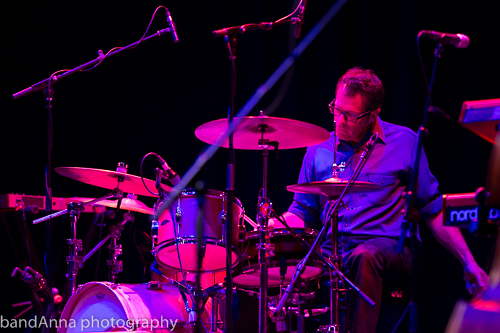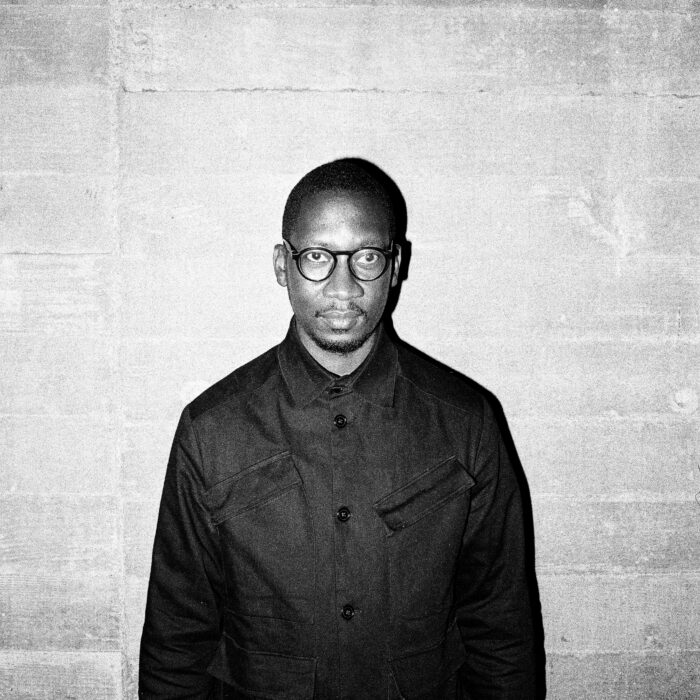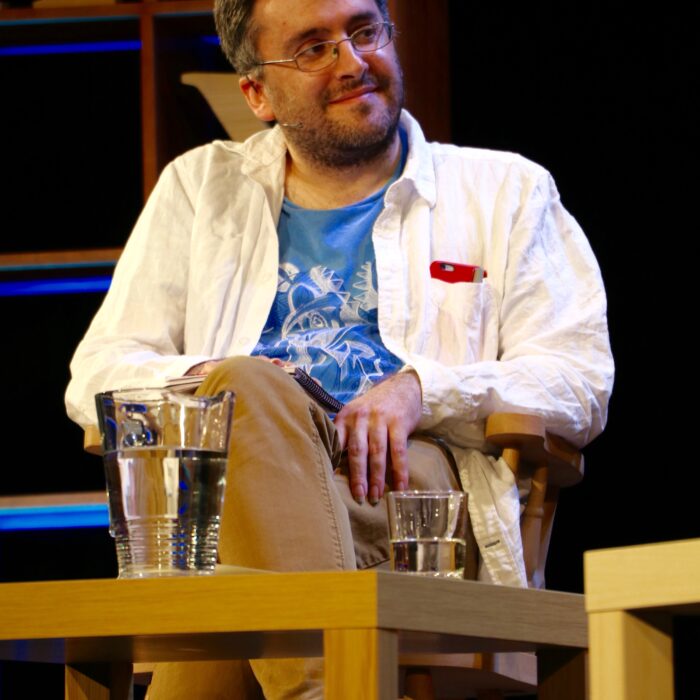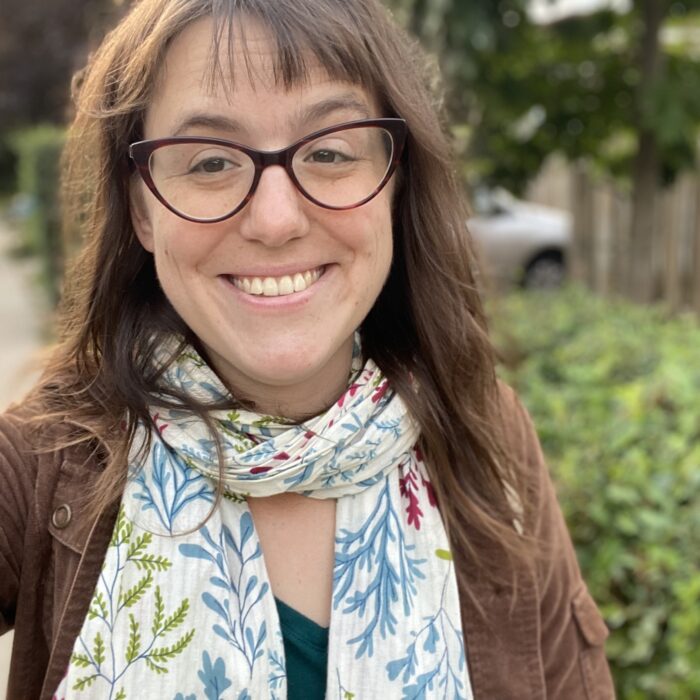You have no items in your cart. Want to get some nice things?
Go shopping
Tucson-based band Calexico will tour Europe again in July 2016 promoting their 2015 album, Edge of the Sun (ANTI-). This tour includes the Larmer Tree Festival in Dorset (16 July 2016) and the Citadel Festival in London (17 July 2016). Calexico enthrall their audiences around the world, who are treated regularly to the band’s passionate and diverse live repertoire. Their music is intent on “negotiating borders” and is often derived from exotic landscapes and cultures they have immersed themselves in. On their recent Australian tour, Melbourne writer Venita Munir interviewed Calexico co-founder and drummer John Convertino about what influences his songwriting, from literature, landscape and place.
Generally speaking, how do books and reading fit into your life?
I love books and reading. Nothing is more satisfying to me than reading a really good book. My wife and son are ferocious readers and can go through books much faster than I can. There are always lots of goods books to read around the house, and that I can take on the road with me.
What books have influenced your thinking and your songwriting craft, and how?
I think The Border Trilogy by Cormac McCarthy was a big influence on our early songwriting in Calexico. Getting out of Los Angeles, into the desert and reading those books, put us in a place mentally and physically that was a good fit for what we were doing musically.
The beautiful short novel by John Fante, Ask the Dust, was important as well because the romance involves immigration – what it’s like to be an immigrant in America, trying to understand how to fit in and find an identity.
Your music evokes your country’s landscape as clearly as a portrait. When I listen to your music I see a desert in Arizona or a colourful busy city in Mexico. How does landscape influence your songwriting?
A sense of place, like the Sonoran desert, can certainly conjure up images, and like painters or writers, it is important to have a connection to your subject, to express what you see around you. But there is the inner landscape as well, how the place where you live sinks into your heart, how it troubles it, how it brings it joy. This comes out in the music in ways that are harder to explain, or maybe even inexplainable (sic).
There is no set method of songwriting, or recording. Certain perimeters can be set in place, but things always change and there are so many variables. Allowing the song to find its way to you usually gets the best results, but that takes a lot of intuition and trust, that can take years to develop.
How do you write landscape into music, both instrumentally and in lyrics?
Allow for space. Break the silence, but don’t fill it up too much. Like in writing, it’s important to allow for the reader to use imagination. Same in music. Tone and sonic texture can direct your thoughts. Words can give you hints, but it’s the space that will allow the listener to imagine his own take on it. The song can become a part of the listener in this way.
Do you write lyrics too? Or is that Joey (Burns)? And do the lyrics come at the same time as the music or after?
I have written some lyrics. On the record Algiers (ANTI-), Joey asked me to write lyrics for three of the songs: ‘Epic’, ‘The Vanishing Mind’ and ‘Para’ … Joey rewrote most of the lyrics on ‘Epic’, but the other two he liked and kept them as I wrote them.
On earlier records I would help him make word choices. We would go over lyrics together and I would help him find more abstract ways of saying things. Lyrics usually come at the end after we have put the music together. Joey is the main songwriter. He has a million ideas all the time. I think he enjoys working with other people to get perspective. I happen to be one of those people.
I do write songs and present the ideas to him, and on occasion, he will develop them more and they become songs for the record, or for our tour-only CDs. I wrote a solo record a decade ago called Ragland. It’s instrumental, only three instruments: drums, vibes and piano. I had been working on another solo record when it turned into a collaboration with Naim Amor. It’s called The Western Suite and Siesta Songs and is going to be released on the LM Duplication label.
How do you form such precise observations of nature and inner insights that can shine through in your music? Do you write inside or outside?
I think we are writing all the time. It never lets up. Once you write your first song, you are always thinking about the next. Inside, outside, in bed, walking around, in museums, reading, movies, books and conversations, eavesdropping; all of it is part of songwriting. Heartbreaks, children, even pets. It’s all there. Just looking at the scenery as the miles drive by. It’s so important to daydream.
Australian Aboriginal people have a concept of ‘Country’, not like ‘country music’, ‘country & western’ or Australia being ‘a country’. It’s a totally different concept that encompasses the land, flora, fauna, water, sky, people and spirituality all integrally linked to their Country. How might you describe this notion of belonging to your own Country?
I have been thinking about this a lot. I once was a very religious person, put a lot of faith in God and spirituality. I feel very different about that now. I feel more connected to the earth and its natural state. I feel that is where I am from, and that is where I will return. My spirituality finds itself more on a molecular level. Indigenous peoples have their beliefs seemingly much more connected to the earth.
I love the book Caleb’s Crossing (Geraldine Brooks), about the native American boy who meets a missionary’s daughter and they describe to each other their beliefs in God.
A sense of belonging to the earth and the human tribe becomes so much more open to me, taking any notion of religion out of the equation, or nationality or borders.
Another good book that touches on that for me is The Grapes of Wrath (John Steinbeck). Humans lose touch with the earth getting wrapped up in their creations, their walls, their beliefs, etc.
How do those ties to the land influence your sound and songwriting?
I think where you are conceived, where you are born, the bloodlines, they all make up who you are. Any culture is a learned culture. When someone says, ‘It’s in your blood’, there is something else going on there, something not learned, something more instinctual. You are feeling something for a reason… it’s not learned. It has to do with where you were born, where your cells came together to form you, your blood. Yes, you have license to write about your country, but you can write about what you learn too. What compels you to write about is there for a reason. What you choose to write about is in your blood. What you may reject or not want to write about is in your blood too. I think cells influence our thinking.
I relate to Italian culture. I love a lot of things about it, and Irish culture too, but really, I am a human being. The cells came together to make me a human. What I am trying to learn everyday is not to be Italian, Irish or American, but to be human. To fight off the things that bring us down, and look for the ways to bring us up.
Have the countries of your ancestors, or their cultural landscapes, influenced your music to date? For example: have the songs, lullabies, fables, poems and urban myths of those cultures found their way into your songwriting?
Yes, very much so. I will choose to pick up an accordion and try out a melody because I feel it’s in my blood, but the accordion is also German and South American and Irish. There are themes that are universal. I love how when the early rock bands started experimenting with different forms of music and blending them in with what they were doing, how it opened up so many people to different cultures. The same happens with food too.
Obviously you’ve lived and worked in the U.S. for most of your lives but do you perceive that as your Country?
The U.S. is my country. It is where I was born. I woke up in a bed made by Europeans conquering a land and a people. The history of my people is something not to be proud of, but I can change that with my own life. How I bring my kids up, what I can teach them and what they can learn from so many different cultures.
I read that you moved to El Paso, Texas. Has it changed the way you write? Has the landscape or political environment been inspiring in different ways to Tucson?
I love being in El Paso. It is different than Tucson in that it is the border. Whites are the minority and in some areas Spanish is the preferred language to be spoken. It’s something I’ve always felt, but becomes increasingly clear living here – there really should be no border fence or wall between us and Mexico. I know that’s easy for me to say, and it’s much more complicated than that, but that’s how I feel.
I think wherever you are or wherever you live is going to affect your writing. How it does that, or in what way it will influence is never really known until it happens.
My belief is that we modern humans disrespect the land and have been too greedy and consumerist for too long. I really hope that we can all learn to cherish what we have and keep the bigger picture in mind.
Yes, I agree, humans do not respect the land like they should. Capitalism and greed are the roots of this seemingly endless abuse. As much as we know how to solve the problems, there is no turning back the fact that we are the problem. So we have to keep chipping away at what it is we do that brings it all down and find the ways to bring it back up.
About Venita Munir
Venita Munir is a Melbourne writer and editor. She has published microfiction and short stories, music reviews and interviews, and has completed her first novel manuscript, 'Lonesome Haul' about a solo female trucker in outback Australia. She loves landscape, music, coffee and greyhounds, and dreams of desert road trips to a Calexico soundtrack.



